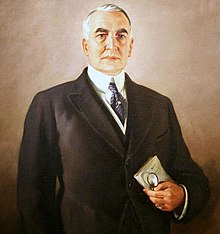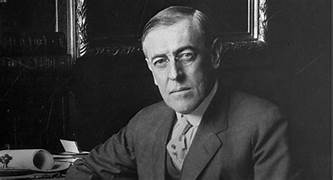On 4th August 1932, the United States reflected on the presidency of Warren G. Harding, the 29th President of the United States. Harding's presidency, which lasted from 1921 until his untimely death in 1923, was marked by both accomplishments and scandals. This date serves as an opportunity to remember and evaluate the presidency of Warren G. Harding and its impact on American history.
Early Life and Political Career:
Warren G. Harding was born on 2nd November 1865, in Blooming Grove, Ohio. He rose to prominence as a newspaper publisher and later entered politics, serving in various positions in Ohio. Harding's charisma, affability, and ability to connect with people propelled his political career, leading to his election as the 29th President of the United States in 1920.
Accomplishments:
During his brief presidency, Harding achieved several notable accomplishments. He advocated for a return to normalcy following the turmoil of World War I, focusing on economic recovery and stability. Harding signed the Fordney-McCumber Tariff Act, which aimed to protect American industries by imposing high tariffs on imported goods. He also supported measures to reduce government regulations and promoted the development of infrastructure, particularly the construction of roads.
Foreign Policy:
Harding's administration made significant strides in foreign policy. The Washington Naval Conference, held in 1921, aimed to reduce naval arms race among major world powers. The conference resulted in the signing of several treaties, including the Five-Power Treaty, which limited the size of naval fleets and promoted peace and stability.
Scandals and Controversies:
Despite his accomplishments, Harding's presidency was marred by several scandals that came to light after his death. The most infamous of these was the Teapot Dome scandal, which involved the illegal leasing of federal oil reserves to private companies. The scandal tarnished Harding's reputation and cast a shadow over his presidency. However, it is important to note that Harding himself was not directly implicated in the scandals, as they were primarily the result of corruption among his administration officials.
Legacy and Historical Evaluation:
Warren G. Harding's presidency remains a subject of debate among historians. While his administration achieved some notable successes, such as his commitment to economic recovery and his efforts to promote peace through diplomacy, the scandals that emerged after his death have overshadowed his achievements. Historians continue to evaluate Harding's presidency, acknowledging both his strengths and weaknesses as a leader.
Presidential Leadership Style:
Harding's leadership style was characterized by his affable nature and his ability to connect with people. He was known for his charm and charisma, which helped him win over voters. However, some critics argue that his desire for a peaceful and harmonious administration may have led to a lack of oversight and accountability, contributing to the scandals that plagued his presidency.






